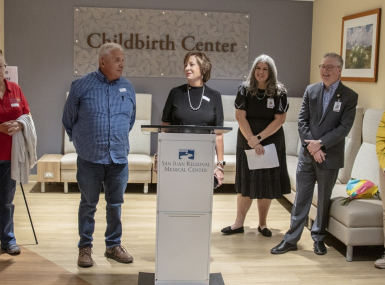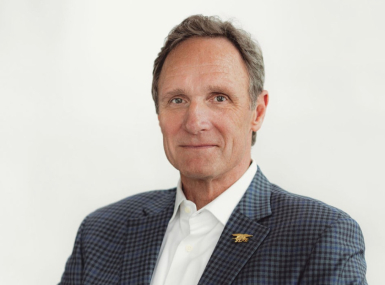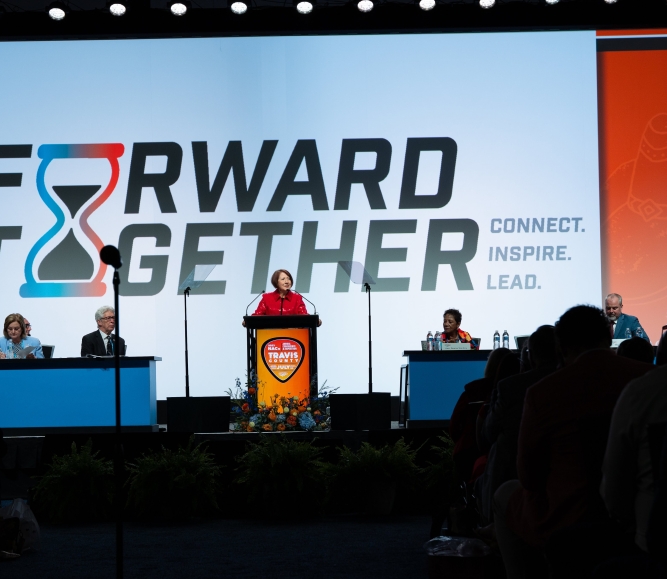Building bridges: County leaders play a critical role in bringing Americans together

Key Takeaways
As the major political parties have become more homogeneous across identities and worldviews, we are seeing America’s political landscape grow to be increasingly polarized. This trend has led to decreased interactions between individuals with differing perspectives, exacerbating perceptions of division and threat.
Our worldviews drive our preferences and because they now more consistently align with our politics, we experience a decline in interactions with people who think differently than we do.
Learn more
Register for the Convergence eLearning training program
Bridging Divides: Tools for County Leaders to Overcome Division and Foster Collaboration
As our divisions continue to influence us to spend less time together, we lack opportunities to experience our many commonalities.
This leads us to exaggerate our differences and perceptions of threats from the “other” group, compelling us to cling to our own group more tightly and further reject those with opposing views.
We are experiencing a heavily divided culture where bridging across differences proves to be exceedingly difficult. However, even amid significant polarization, there is hope! A Public Agenda/USA TODAY Hidden Common Ground survey found that:
- 72% of Americans believe that we have more in common than what divides us
- 93% of Americans say it is important to reduce divisiveness in the United States, including two-thirds who say it is very important to do so, and
- 79% say that creating more opportunities for people to talk and interact with those who have different values and views would be effective in reducing divisiveness and destructive disagreement.
And, despite the waning trust in federal elected officials, Gallup’s findings indicate that 67% place significant trust in local government to tackle local challenges.
Gallup also found that 67% have a great deal of trust in local government to handle community issues. County leaders are poised to play a crucial role in bringing people together and bridging divides.
In support of NACo President Mary Jo McGuire’s signature “ForwardTogether” theme, NACo has partnered with the Convergence Center for Policy Resolution, the leading organization bridging divides to solve critical issues through collaborative problem-solving across ideological, political, and cultural divisions.
The heart of our collective effort lies in the “Bridging Divides: Tools for County Leaders to Overcome Division and Foster Collaboration” toolkit — a comprehensive resource designed to share the research behind the divisions gripping our nation and equip county government leaders with practical strategies and tools to bridge divides.
In addition to the toolkit, Convergence will also build county leaders’ capacity through training sessions. At the NACo Legislative Conference in February, Convergence delivered a session that laid a foundation for bridge-building.
One more session is slated for July, providing county leaders with a unique opportunity to identify strategies to tackle the most pressing issues affecting their communities and departments. In the fall of 2024, Convergence will offer an eLearning program to a cohort of county leaders.
Solving shared problems across our differences requires a problem-solving mindset that helps to reset our typical “us vs. them” thinking.
Here is a summary of the five elements of the problem mindset, which you can learn more about in the toolkit.
- Conflict Can Be Constructive. Conflict can be an opportunity to learn and push thinking to a new level.
- Everyone Gets the Benefit of the Doubt. Negative intentions are rare. Seek to understand who people are — their experiences, their values, and why they think the way they do — before passing judgment on them or their viewpoints.
- Curiosity Is the Cure. Cultivate curiosity and keep asking questions to learn more rather than just react, especially when you hear things that you disagree with or don’t fully understand.
- Relationships at the Core. Stay focused on building quality relationships. Identify and focus on shared goals, values, identities, and life experiences.
- Seek Higher Ground. Strive to develop solutions that go beyond compromise to integrate the perspectives and meet the diverse needs of everyone who has a stake in your problem.
Related News

Now I know I can adapt my communication style
San Juan County, N.M. Commissioner Terri Fortner spent her career working with people one-on-one, but she overcame hangups about online communication when the pandemic forced her onto video calls when she first took office.

County service meets a veteran’s need for purpose in Spotsylvania County, Virginia
After Drew Mullins transitioned from a high-performance lifestyle in the military, he found the environment and purpose he sought when he took office in his county.
Now I know that solid waste is complicated
Custer County, Idaho Commissioner Will Naillon says solid waste removal is "one of the things that people often take for granted until it’s their job to make sure it happens... that’s the story of being a county commissioner."
County News
'All the way' is the only approach Mary Jo McGuire knows
Mary Jo McGuire found a match for her skills and talents representing her Ramsey County district, and she's bringing the same all-in approach as NACo's president.

